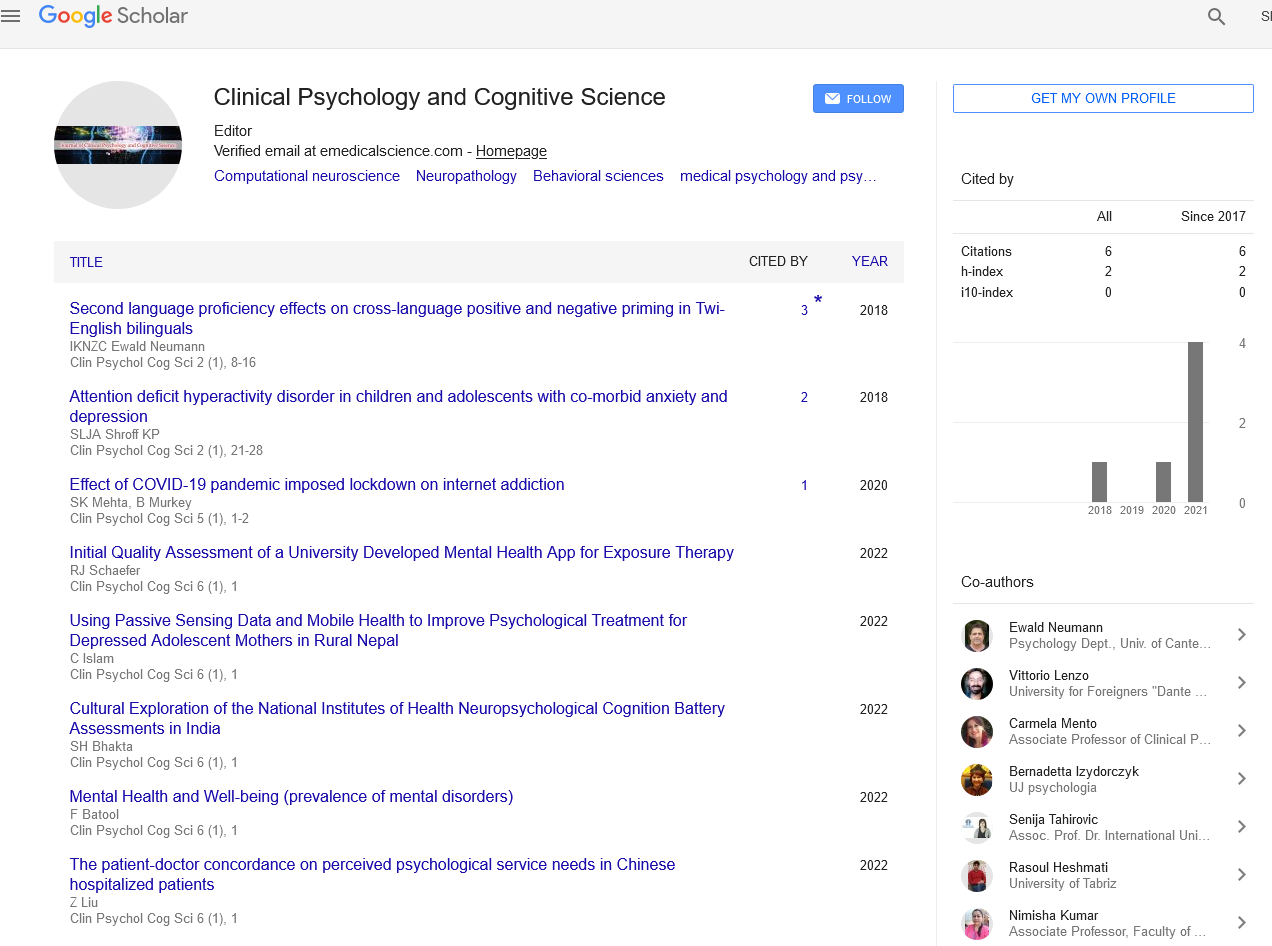
Sign up for email alert when new content gets added: Sign up
Abstract
Yoga and anxiety
Author(s): Liam Ford* and Glen FordExercise, yoga, meditation, tai chi, or qi gong are popular nonpharmacologic and nonconventional treatments for depression and anxiety. These therapies have been demonstrated to reduce symptoms of depression and anxiety disorders in meta-analyses and systematic reviews. Exercise appears to be the most effective supplementary treatment for treatment-resistant depression, unipolar depression, and posttraumatic stress disorder. Yoga is effective as monotherapy or adjuvant therapy, notably for depression. It aids in the treatment of anxiety disorders, notably panic disorder, as adjuvant therapy. Although tai chi and qi gong may be beneficial as supplementary therapy for depression, the results are mixed. Mindfulness-based meditation is effective as a single or adjuvant therapy for depression, with effects lasting up to six months. Even though beneficial results are less common in patients with anxiety disorders, the data supports supplementary treatment. Mindfulness-based therapies appear to have no negative side effects, and their overall health advantages warrant their use as a supplementary therapy for patients with depression and anxiety disorders.
Full-Text | PDF




